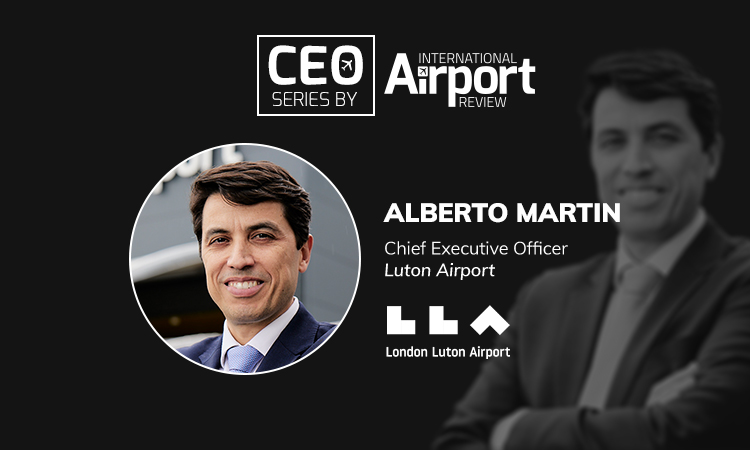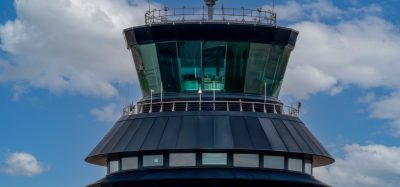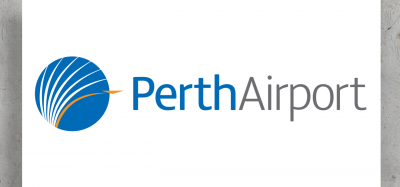Transition to sustainable aviation will be key to the industry’s future, says London Luton Airport CEO
- Like
- Digg
- Del
- Tumblr
- VKontakte
- Buffer
- Love This
- Odnoklassniki
- Meneame
- Blogger
- Amazon
- Yahoo Mail
- Gmail
- AOL
- Newsvine
- HackerNews
- Evernote
- MySpace
- Mail.ru
- Viadeo
- Line
- Comments
- Yummly
- SMS
- Viber
- Telegram
- Subscribe
- Skype
- Facebook Messenger
- Kakao
- LiveJournal
- Yammer
- Edgar
- Fintel
- Mix
- Instapaper
- Copy Link
Posted: 14 March 2023 | Alberto Martin | No comments yet
For International Airport Review, Alberto Martin, CEO of London Luton Airport sits down for this exclusive Q&A.


How did your career in the aviation industry begin?
I started my working life as an Aeronautical Engineer, and I always saw myself working in an airport environment. I’m from the Canary Islands and life as an islander gives you an insight into the vital importance of community and connectivity.
After a brief spell with an airport supply chain company, I had the opportunity to join the biggest airport operator in the world, Aena. My career with Aena now spans over 20 years and has provided some incredibly rewarding opportunities including Managing Director roles at Fuerteventura and Gran Canaria Airports for almost 10 years.
After overseeing successful multi-million-pound expansion projects at both airports, I moved to the UK to become Planning and Investment Director at London Luton Airport (LLA), before progressing to my current role of CEO in December 2018.
What is the most rewarding aspect of being an airport CEO? On the other hand, what is most difficult?
There are so many enjoyable aspects to my role that singling out the most rewarding is difficult.
The opportunity to work collaboratively with my senior leadership team, our teams throughout the airport, our partners and the wider airport community across so many projects is something that I really enjoy.
From achieving sustainable growth, to evolving our passenger experience and delivering value to the local economy, it is hugely rewarding to witness the passion and commitment of our people as they work to deliver continuous improvement across London Luton Airport.
Of course, as an airport, everything we do is subject to scrutiny. Addressing the historic perceptions of the airport has been a major challenge, but one that we have risen to by focusing on delivering strong operational performance and a simple, friendly passenger experience. During 2022, LLA has continued to provide a consistently strong operational performance, with an average wait time in security of nine minutes and our best customer feedback ever, with 80% of passengers rating their experience as very good or excellent, and a further 18% as good. We were also delighted to be named as runner-up in the ‘best airport’ category in the 2022 Condé Nast Readers’ Choice Awards for the second consecutive year.
Can you give us an overview of the three most exciting developments currently happening at London Luton Airport?
This year is a milestone year for us as we are celebrating our 85th birthday. It promises to be busy and exciting on so many fronts, including the continued investment in our terminal, the arrival of new shops and restaurants and the addition of new routes.
All these developments will contribute to the passenger experience that we deliver which is a hugely exciting area of focus. The pandemic highlighted the need to evolve the ways in which we engage with passengers and last year we launched the LLA Way Service Standard, a service strategy and blueprint for delivering a consistently courteous, responsive and caring passenger experience. The LLA Way is already delivering impressive results, but the hard work continues and our focus is on the continued enhancement of our passenger experience this year.
This year will also see the transformational launch of the new electric-powered people mover DART, delivered by the airport owner Luton Rising. It will transport passengers from Luton Airport Parkway station to the terminal in just over three minutes, resulting in a seamless, quicker and smoother journey for passengers travelling from central London.
The service will reduce journey times between the airport and over 60 stations across the Thameslink and East Midland Rail networks, including 22 stations in Greater London, and passengers travelling from London St Pancras will be able to reach the terminal in around 30 minutes.
The launch of the DART will support our plan for improved connectivity and sustainable growth, lessening the environmental impact by encouraging more people to leave their cars at home and decreasing carbon emissions by 70%.
The final area that I would highlight is the value that we deliver to the local region and the work we do in partnership with Luton Borough Council and Luton Rising. The success of the local area goes hand-in-hand with the success of the airport and, as the biggest local employer, we are uniquely positioned to deliver significant economic benefits.
Before the pandemic, LLA was estimated to be contributing over £3,400 to the UK economy every minute of every day. We currently support around 27,000 jobs directly and through our supply chain, and around 53% of our total supply chain spend is now with suppliers based within a 25-mile radius of the airport.
What is the biggest challenge Luton Airport is having to tackle?
Like all airports, passenger growth, more specifically achieving the passenger numbers that we saw prior to the pandemic and preparing the airport for future growth, remains an important challenge. Last year, we took a significant step in the right direction when we welcomed over 13 million passengers, a year-on-year increase of around 185%.
This is an encouraging sign that we are doing the right things as an airport and our aim this year is to build on this growth responsibly and sustainably, whilst maintaining focus on delivering a strong operational performance.
What is your passenger demographic and how does the airport create a personalised passenger experience?
Whilst we attract a significant amount of business travel, the majority of passengers that we welcome through our doors are travelling for leisure or to visit friends and relatives. Our mission remains the same for every passenger – to deliver a simple and friendly passenger experience.
Behind the scenes, there is also a significant amount of focus placed on the ways in which we can use data and insights to understand passengers’ requirements, perceptions and expectations in order to provide more choice, more personalised communications and a more tailored end-to-end experience – a very exciting area of development.
How crucial is the workforce to the airport environment and overall ecosystem, and how can we abate the current issues around the lack of staffing and skilled workforce?
Our people are critical to our success and undoubtedly played an instrumental role in our successful operational performance over the course of 2022.
The pandemic created uncertainty around the future of the aviation sector, and for many people it prompted a decision to look at alternative career paths.
Thankfully, we were able to largely avoid the resourcing issues that other airports faced last summer due to early and detailed resource planning, in close partnership with the airport owners, Luton Rising and other local partners.
This planning, along with a prudent joint investment package, allowed us to minimise redundancies and retain almost all directly employed staff during a turbulent period for the wider sector as the return in demand for air travel outstripped the sector’s requirement to recruit and fill critical, operational roles.
In your opinion, how does the aviation industry need to adapt to secure its place in the future?
By remaining agile, embracing new green technologies and innovations, and working more collaboratively with our partners to address the environmental challenge head on.
One of the most pleasing aspects of the industry’s response to the pandemic has been its shift from a focus on recovery, to a determination to identify ways to build back better and more responsibly.
The transition to sustainable aviation will be key to the industry’s future. London Luton Airport is committed to playing a leading role in the transition to sustainable aviation and our ambition is to achieve net zero for our airport emissions by 2040, ten years ahead of the government’s target.
Last year LLA was ranked as the best-performing company by GRESB, an internationally recognised sustainability framework that benchmarks environmental, social and governance (ESG) management and performance, which is an encouraging sign that we are doing the right things to play our part in the journey to sustainable aviation.
It is also important that our industry remains attractive to the next generation of aviation professionals and, once again, our approach to sustainability will play a pivotal role in attracting new and diverse talent to our sector.
When we say the ‘future of aviation’ what is the first thing that comes to mind?
The future looks bright, and for London Luton Airport it is based on sustainable growth. Throughout the unprecedented challenges of the pandemic and post-pandemic period, the aviation industry has demonstrated its resilience and its capacity to adapt and evolve.
Now, with the transition to sustainable aviation gathering momentum, it is vital that we all play our part in finding and adopting innovative, green technologies and new ways of working that will pave the way for a more sustainable approach.
London Luton Airport have taken the first steps on our pathway to net zero by significantly reducing our carbon footprint despite an increase in passenger numbers over recent years. But there is still plenty of work to be done, from the generation of electricity from on-site renewable sources to a transition to low-carbon vehicles and investment in energy-efficient technology, we are exploring every opportunity to pave the way for our sustainability journey. We are also continuing to work with our airlines and partners across the wider airport community to improve the efficiency of our operations and the reduction of overall emissions across our airport.


Alberto Martin is the CEO at London Luton Airport Operations Ltd, holding the post since 2018. He joined the airport as Planning and Investment Director, where he was responsible for the delivery of its £160m expansion project. Alberto has more than 20 years’ experience in airports, holding a variety of executive roles across Europe, including Managing Director of Gran Canaria and Fuerteventura airports. During his time at Gran Canaria, he oversaw a period of record growth in profitability and passenger numbers, and successfully delivered improved airport facilities. Alberto has an MSc in Aeronautical Engineering and was previously Chairman of the Regional Airports Forum of ACI-Europe.
Related topics
Airport leadership, CEO series, Passenger experience and seamless travel, Social responsibility, Sustainability


















